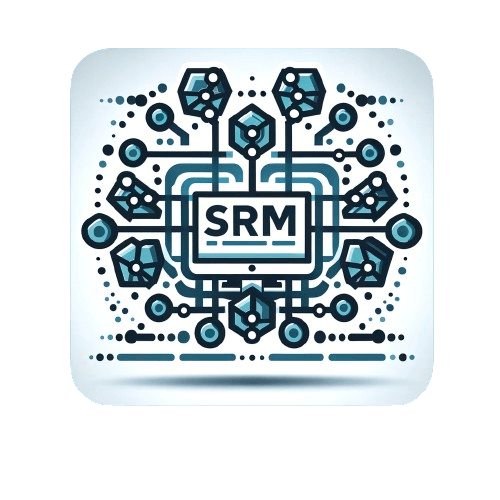Supply Chain Software Development Company
Revolutionizing the Way Logistics and Supply Chains Operate. Our Expert Teams Add Value to a New or Existing Solution by Assisting You with Custom Software Development
Custom Supply Chain Software Solutions
As a pioneer in software development, Mobiloitte has consistently delivered robust and comprehensive supply chain software solutions to leading global enterprises. Recognizing the shipping industry’s pivotal role in the global economy, we understand the urgent need for a comprehensive supply chain management system that empowers organizations to streamline, manage, and execute operations with unparalleled efficiency and precision.
Our expertise lies in crafting supply chain management (SCM) software solutions that enhance control and visibility across all facets of your business’s supply chain activities. We empower you to build cutting-edge digital solutions tailored to your warehouse management, transportation, and fleet management needs.
Get in Touch
Supply Chain Management (SCM) Software Development Services

Supply Chain Analytics

Quality Control of Manufacturing

SRM Software Development

Warehouse Management

SCM Software Development
Looking for a Custom Supply Chain Software Solutions?
Supply Chain Technology Solutions

Artificial Intelligence for Supply Chain Management
Mobiloitte embraces the transformative power of artificial intelligence (AI) to revolutionize supply chain operations. By harnessing AI’s capabilities in demand forecasting, inventory management, fraud detection, and route optimization. As a pioneer in supply chain software development, We are helping businesses streamline operations, reduce costs, and enhance customer satisfaction. Together, we can transform your supply chain into a competitive advantage and drive business success in the ever-evolving market landscape.
- Predictive Analytics
- Route Optimization
- Warehouse Automation
- Inventory Optimization
- Logistics Operations Optimization
- Quality Control & Predictive Maintenance
Open AI Integration Solutions for Supply Chain Management
Transform your supply chain operations and elevate your business to new heights with OpenAI’s transformative integration solutions. Experience the Open AI-powered tools to optimize inventory levels, anticipate disruptions, and personalize customer interactions. Empower your team with risk assessment tools, streamline order processing, and gain real-time supply chain visibility. Enhance supplier collaboration, automate procurement processes, and experience the future of supply chain management with OpenAI.
- Automated Risk Assessment
- Personalized Customer Interactions
- Automated Order Processing
- Real-time Inventory Tracking
- Automated Document Review
- Supply Chain Analytics


Blockchain For Supply Chain Solutions
Leveraging blockchain’s secure and transparent ledger, Mobiloitte empowers organizations to track every step of their supply chain journey, ensuring product authenticity and verifiable provenance. This newfound visibility enriches trust among supply chain partners, reducing discrepancies and disputes. Blockchain’s inherent capabilities of transparency, traceability, efficiency, automation, security, and immutability hold immense potential to streamline supply chain processes and enhance overall performance.
- Order Management System
- Supply Chain Transparency
- Blockchain for Food System
- Automation with Smart Contracts
- Traceability Management
- Blockchain-based Software
IoT Software for Supply Chain
By integrating IoT into supply chain management, businesses can achieve unprecedented levels of efficiency, cost reduction, and customer satisfaction. IoT devices provide real-time visibility into operations, enabling data-driven decision-making that optimizes processes, reduces risks, and drives continuous improvement. Mobiloitte’s IoT-powered solutions empower organizations to enhance real-time visibility, optimize inventory management, predict equipment failures, reduce transportation costs, and enhance customer satisfaction.
- Real-time Tracking
- Monitoring Storage Conditions
- Fleet Management system
- Integrated Supply Chain Oversight
- Forecasting Solutions on Demand
- Precision Inventory Management


Metaverse Development for Supply Chain Management
As the Metaverse continues to evolve, Mobiloitte is at the forefront of exploring its potential to revolutionize supply chain management. By leveraging the immersive and collaborative capabilities of the Metaverse, Mobiloitte envisions a future where organizations can transcend physical limitations and unlock new levels of efficiency, transparency, and resilience across their supply chains. Together, we can embark on a transformative journey into the future of supply chain operations, unlocking new possibilities for efficiency, collaboration, and innovation.
- Virtual Supply Chain Visualization
- Digital Twins for Assets
- Training & Skill Development
- Smart Contracts
- Customer Engagement
- Real-Time Monitoring
Mobile App Development for Supply chain
Enhance your supply chain operations with Mobiloitte’s tailored mobile app development solutions. Our on-demand mobile app development expertise ensures your app is customized to your specific needs, providing real-time access to critical information and streamlining operations. Empower your team with real-time inventory management capabilities, enabling accurate tracking, replenishment, and optimization of stock levels. Provide customers with seamless order tracking and proactive alerts and enhancing transparency.
- On-Demand Mobile App Development
- Mobile Inventory Management
- Order Tracking and Alerts


Web Application Development for Supply Chain Industry
At Mobiloitte, we manage to develop Websites that perform well in preliminary tests and meet all the initial requirements. Our developer’s commitment to innovation and excellence is evident in every aspect of the web app development process. We leverage the latest technologies, employ agile methodologies, and adhere to the highest quality standards to deliver solutions that not only meet but exceed expectations. You can rest assured that your web apps will be at the forefront of innovation and driving business success.
- Custom Website Design
- Responsive Website Development
- Content Management Systems
- WordPress CMS Integration
- Inventory Management System
- SRM System
Business Benefits of Adopting Supply Chain Software
Deliver exceptional customer satisfaction with fast order fulfilment and real-time tracking.
Enrich seamless collaboration and information sharing with stakeholders across the supply chain.
Gain complete visibility into order status, inventory levels, and supply chain operations to optimize efficiency.
Reduce paperwork, automate processes, and save time with digital document management.
Empower management with comprehensive data analytics to make informed decisions.
Achieve operational excellence and maximize productivity with automated processes and end-to-end visibility.

Why Choose Mobiloitte For Custom Supply Chain App Development?
Mobiloitte understands that every business has unique needs and requirements and thus provides customized solutions that are tailored to meet the specific needs of each client. With the help of advanced technology, Mobiloitte provides real-time visibility into the supply chain, enabling businesses to make informed decisions and respond quickly to any disruptions. We have a team of experts with extensive experience in supply chain management who can provide customized solutions for businesses of different sizes and industries.
Proven ROI and Sustainable Success: Mobiloitte’s solutions deliver measurable results, providing a clear return on investment for our clients. We help businesses achieve significant cost savings, improve efficiency, enhance customer satisfaction, and gain a competitive edge in the market.
Deep Expertise and Proven Track Record: Mobiloitte boasts a team of highly experienced supply chain experts with a deep understanding of industry best practices and the latest technological advancements. We have a proven track record of success in helping businesses across diverse industries achieve operational excellence and gain a competitive edge.

